
My favourite translated fiction reads
It’s absolutely no secret some of my favourite reads are translated fiction.
Earlier today, as I stood before my bookshelves, contemplating which carefully curated list of books to write about next, I found myself listening to the rain cascade heavily against the window whilst a gentle mist enveloped the distant hills, and the air was infused with the delicate aroma of a pumpkin-spiced latte candle I purchased earlier. In that moment of let’s be honest – perfection, I pondered what would be the ideal companion to curl up with. My gaze landed upon a literary gem: “Before the Coffee Gets Cold” by Toshikazu Kawaguchi, translated by Geoffrey Trousselot. In that serendipitous moment, the notion crystallised in my mind—I had to pen an ode to the world of translated fiction.
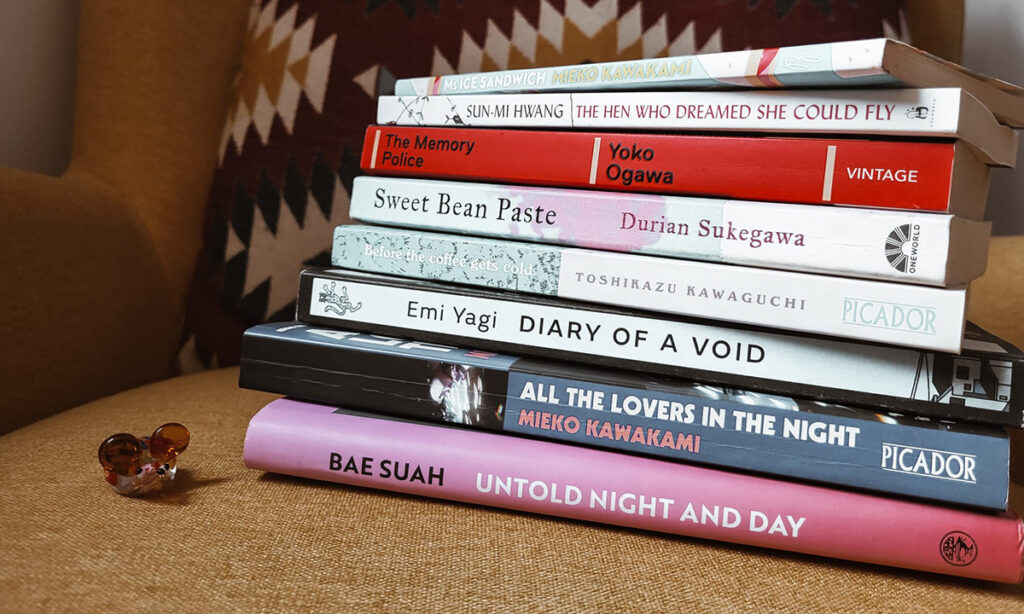
1. Before The Coffee Get’s Cold by Toshikazu Kawaguchi,
Translated from the Japanese by Geoffrey Trousselot
“With the coffee in front of her, she closed her eyes, and inhaled deeply. It was her moment of happiness.”
Before the Coffee Get’s Cold.
The series’ first book had me hooked, much like countless other readers who stumbled upon its pages. A cosy coffee shop tucked away in a charming Tokyo back alley serves steaming cups of coffee with the extraordinary power to transport you through time. It’s an irresistible premise, and I was utterly enthralled by it.
Within Toshikazu Kawaguchi’s masterful narrative, we embark on a journey that delves deep into the timeless quandary: If given the chance, what moments in time would you choose to alter? It left me pondering what time I might travel back to or to whom.
The magic doesn’t stop at the coffee shop’s allure. As we step inside, we encounter a rich tapestry of characters, each with their own stories and desires. Even more delightful is that this series extends across four books, offering a multitude of time-travelling escapades for you to slurp. Just be sure to pour yourself a comforting cup of your favourite brew before settling down to immerse yourself in these emotional adventures.
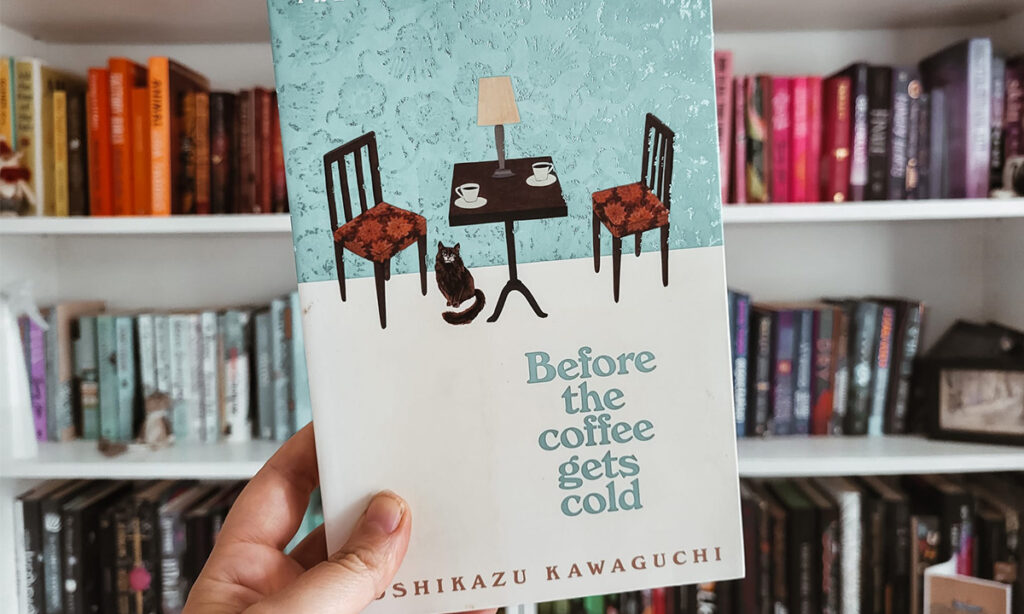
2. Ms Ice Sandwich by Mieko Kawakami
Translated from the Japanese by Louise Heal Kawai
“My conclusion is that when it comes to the face, emotions are seventy per cent from the eyebrows and thirty per cent from the mouth.”
Ms Ice Sandwich
I must confess my initial attraction to this book was solely fuelled by the bold cover and intriguing title. That’s a lot of sandwiches.
However, the boldness of this novella isn’t confined to its cover alone; it extends gracefully to the very characters that inhabit its pages. “Ms Ice Sandwich” is a beautifully crafted, delicately written gem that delivers its narrative with remarkable finesse, all within the confines of a concise 92 pages. It’s a literary creation that packs a punch reminiscent of a perfectly constructed egg and cress mayo sandwich.
You’ll embark on a journey that explores themes of new beginnings, the absence of parents, and the bittersweet art of saying farewell. Prepare to find yourself chuckling heartily in one moment and perhaps shedding a tear in the next. As our protagonist navigates this poignant narrative, you’ll undoubtedly be captivated by the enigmatic Ms. Ice Sandwich herself.
And for those, like me, who revel in books where the culinary world (fine ok, a supermarket) plays a pivotal role, “My Ice Sandwich” is a delectable packaged treat that beckons you to devour it in a single sitting.

3. The Hen Who Dreamed She Could Fly by Sun-mi Hwang
Translated from the Korean by Chi-Young Kim
“Just because you’re the same kind, doesn’t mean you’re all one happy family. The important thing is to understand each other. That’s love!”
The Hen Who Dreamed She Could Fly
You’re gonna cry. And by cry, I mean you’re gonna sob your heart out. This is one of my favourite books of all time, and not just because it made me cry. However, I always find it incredible when a book can make me feel so much (and in only 110 pages, too!).
Our protagonist is a plucky hen named Sprout, and the story behind why she chooses to call herself Sprout is a poignant tale in itself, capable of melting even the sturdiest of hearts. No longer willing to comply with the routine of laying eggs for others, only to see them whisked away to the market (a similar premise that might resonate with fans of the film “Chicken Run”), Sprout hatches a daring plan to escape, nurturing the dream of one day becoming a mother. As you immerse yourself in Sprout’s world, you become one with her, your deepest desires intertwining with hers. You root for her with an intensity that propels you forward, turning each page with a frantic desire to uncover whether her hope will blossom into reality.
Yet, this book offers more than just a tale of hope. It’s a narrative of rebellion, refusing to conform, and living with unwavering courage in the face of adversity.
Enhancing this moving narrative are simple yet elegant black-and-white illustrations by Nomoco, with a unique ability to tug at your heartstrings.
Whilst The Hen Who Dreamed She Could Fly is not part of a series, it does sit alongside The Dog Who Dared To Dream and Miracle on Cherry Hill, which all follow similar emotional pursuits by Sun-mi Hwang. I love them all, and I highly recommend you check them out.
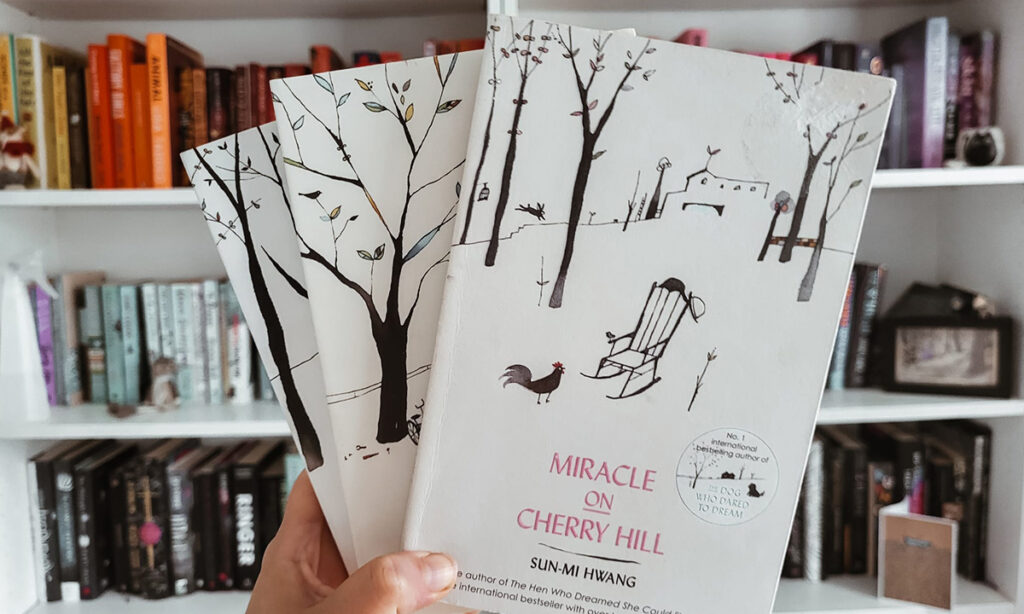
4. The Memory Police by Yoko Ogawa
Translated from the Japanese by Stephen Snyder
“When you lost your voice, you lost the ability to make sense of yourself.”
The Memory Police
I was shocked that this novel was published over 25 years ago in Japan. Despite its age, the story reads as if it were penned just yesterday, endowing the book with a timeless quality that truly captivates the reader.
Set on an enigmatic island, the narrative revolves around a peculiar phenomenon: the gradual loss of memory among the island’s inhabitants. It all begins with the mundane disappearance of everyday objects, like a simple pen, erased entirely from their collective memory. These vanishing objects are subsequently eradicated from the community, effectively erasing their existence from the island’s history. Enter the Memory Police, whose solemn duty is to ensure the total obliteration of these memories. They descend upon homes, eliminating all traces of the erased objects, leaving no room for their recall.
Most of the island’s inhabitants are oblivious to these changes, while those few imbued with the power to recall the lost objects live in fear of the Memory Police. What happens to the few who do remember and don’t want to let go of those memories?
It’s a subtly chilling read, exploring the power of memories and the trauma of forgetting, of loss. It had me on the edge of my seat, needing to find answers to why this was happening, how it was happening, and if the memories ever came back.
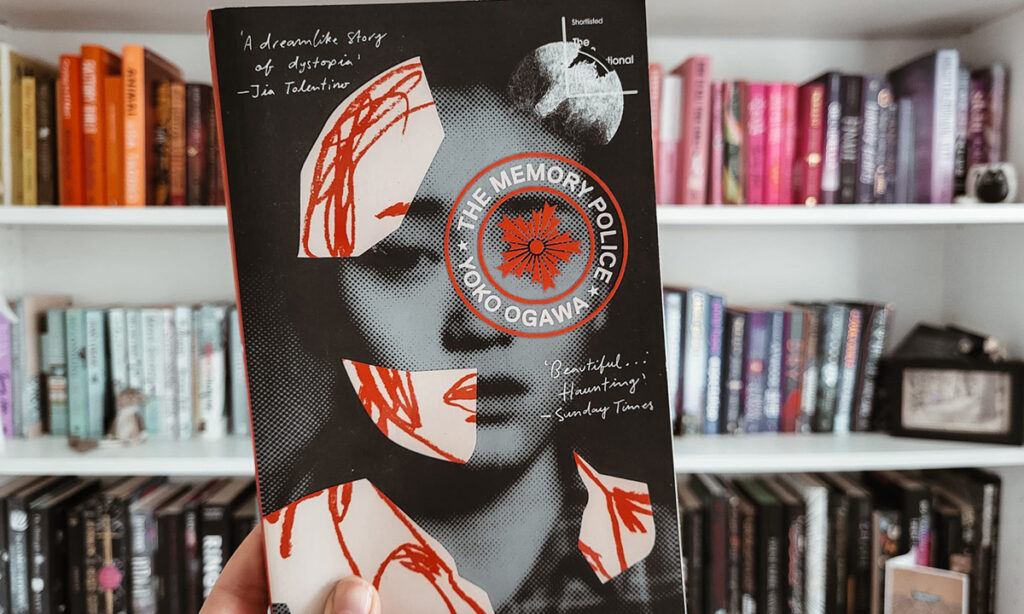
5. Sweet Bean Paste by Durian Sukegawa
Translated from the Japanese by Alison Watts
“All experience adds up to a life lived as only you could. I feel sure the day will come when you can say: this is my life.”
Sweet Bean Paste
Another literary gem immediately snared my attention, thanks to its captivating cover and a title that hinted at my weaknesses – cherry blossom trees and any reference to food!
Meet our protagonist, Sentaro, a man burdened by a criminal record and a distant dream of becoming a writer. His current job finds him tucked away in a tiny confectionery shop making dorayki, but his life seems stuck in a disheartening cycle. However, an unexpected friendship blossoms, shattering the monotony of Sentaro’s mundane existence. As the story unfolds, it weaves a poignant tapestry exploring themes of stigma, identity, the enduring influence of the past, and the transformative power of friendship and acceptance.
This emotionally charged yet heartwarming tale held me captive from start to finish, leaving me somewhat disgruntled when I had to get off the train and return to the real world (the inconvenience of responsibilities!). I wholeheartedly endorse immersing yourself in the “Sweet Bean Paste” pages while savouring some dorayaki on the side for a truly wholesome and immersive experience.
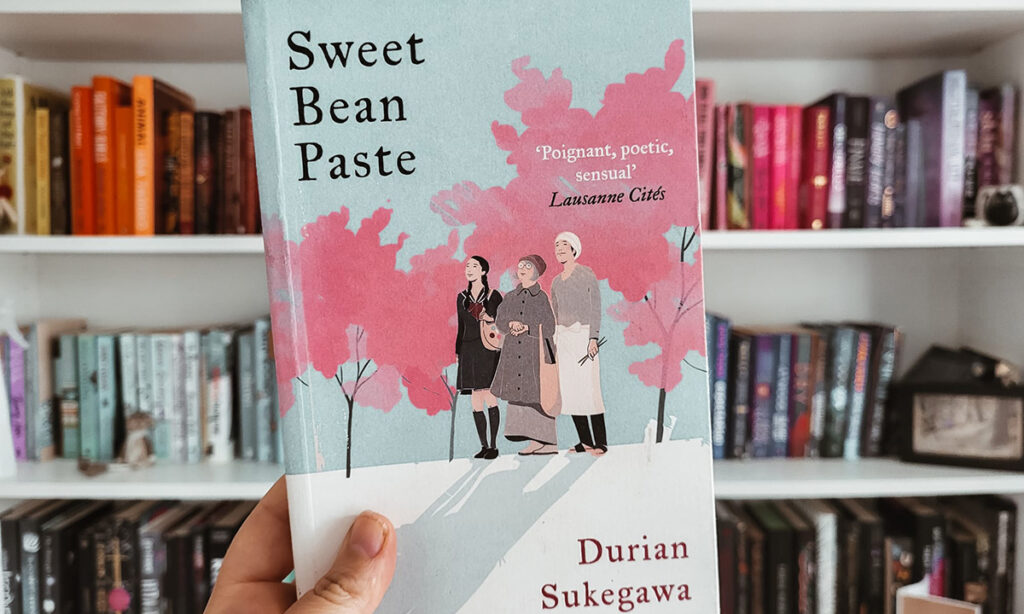
6. Diary Of A Void by Emi Yagi
Translated from the Japanese by David Boyd and Lucy North
“Maybe that’s making a family is all about: creating an environment in which people make space for one another – maybe without even trying, just naturally, to make sure that nobody’s forgotten.”
Dairy Of A Void
“For the sake of women everywhere, Ms Shibata is going to pull off the mother of all deceptions.“
Ms Shibata decided to avoid harassment at work by telling her office she was pregnant.. but Ms Shibata is most definitely not pregnant. Pregnant Ms Shibata rests, watches TV, takes long baths and doesn’t have to make coffee for anyone. It’s a rollercoaster of laughter in some moments, juxtaposed with profound pangs of solitude in others.
Diary Of A Void is a work of feminist literature exploring women’s expectations to be mothers. I couldn’t help but be very nervous about how this would end when the time came for Ms. Shibata to give birth. There were times when I questioned if Ms. Shibata was lying at all. This thought-provoking journey leaves readers in both amusement and contemplation, offering a fresh perspective on the challenges women face in society while keeping us guessing until the very end.
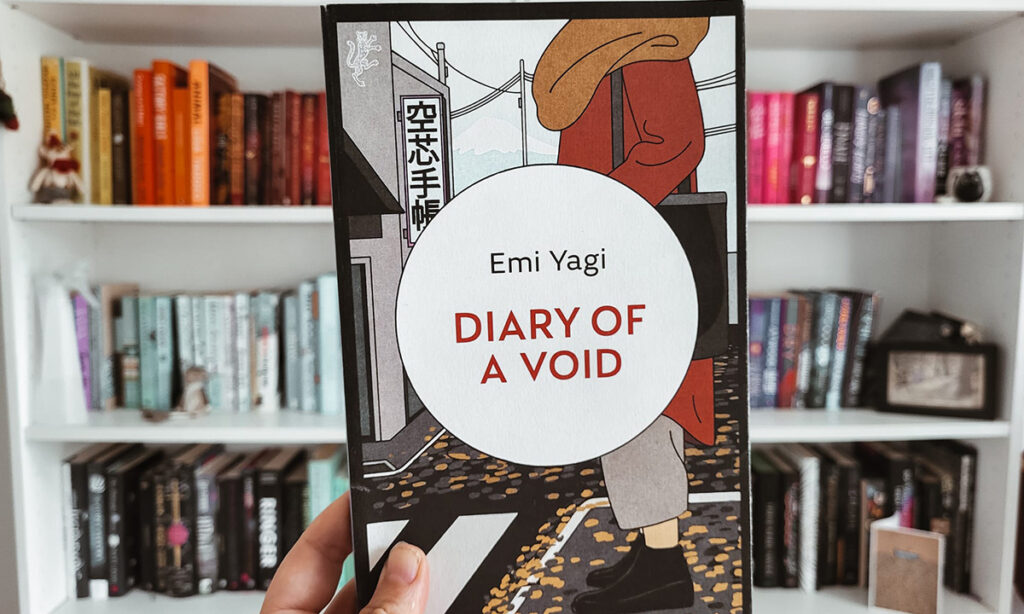
7. All The Lovers In The Night by Meiko Kawakami
Translated from the Japanese by Sam Bett and David Boyd
“Why does the night have to be so beautiful? As I walk through the night, I remember what Mitsutsuka said to me. “Because at night, only half the world remains.”
All The Lovers In The Night
The second book by Meiko Kawakami on this list, Kawakami is soon becoming a new favourite author.
At the heart of this narrative is Fuyuko Irie, whose life unfolds within the confines of her carefully constructed solitude. Dwelling alone and grappling with the inability to forge and sustain meaningful connections, Fuyuko finds herself entangled in a quiet, lonesome existence. Her existence is unchallenged, a cocoon of safety, yet unmistakably lonely.
But the tides of change sweep in when an unexpected encounter occurs on her favourite night of the year – Christmas Eve in Toyko, bathed in the shimmering glow of city lights. As readers, we become intimate witnesses to her transformation. We follow Fuyuko on a journey to figure out who she truly is and what she wants from her life.
The novel casts a discerning eye on the intricate tapestry of middle-aged women, shedding light on their roles and challenges.
Meiko Kawakami’s storytelling prowess shines once more, weaving a narrative that is both heartrending and uplifting as we accompany Fuyuko on her quest for self-realisation and navigating the complex terrain of societal expectations.
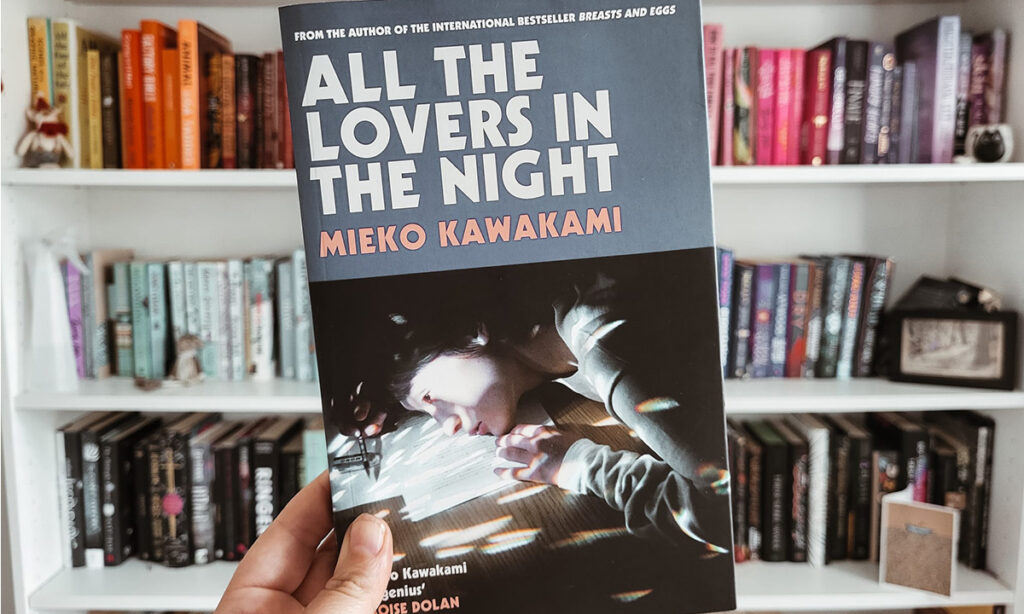
While these translated fiction gems have certainly enriched my reading experience, this journey into translated literature is still ongoing. In fact, it’s just beginning. I’m eagerly seeking fresh voices and’d love to hear from you. If you have any recommendations, especially from countries I have not explored, please don’t hesitate to share them in the comments below. I can’t wait to explore them all and continue to read more diversely!




